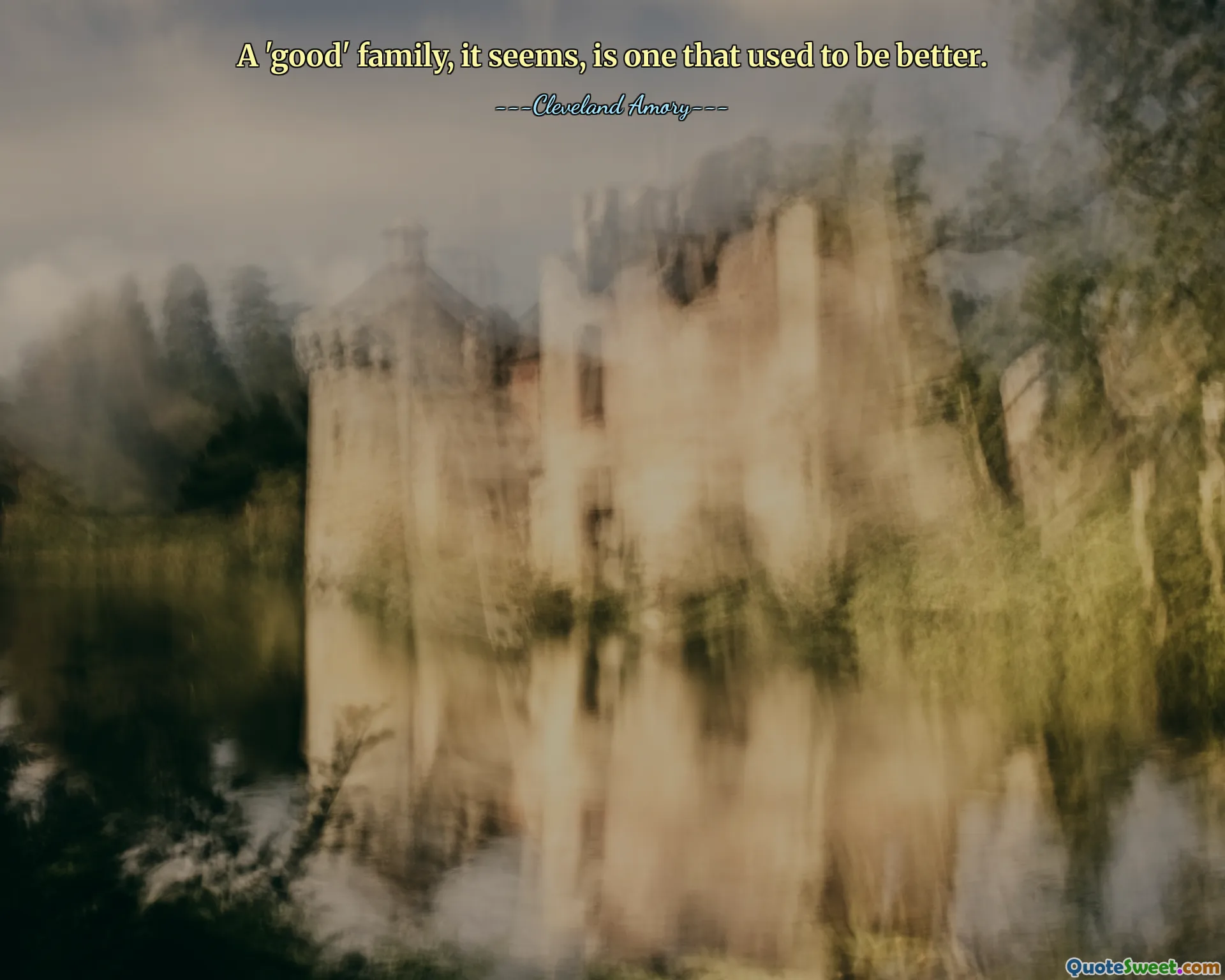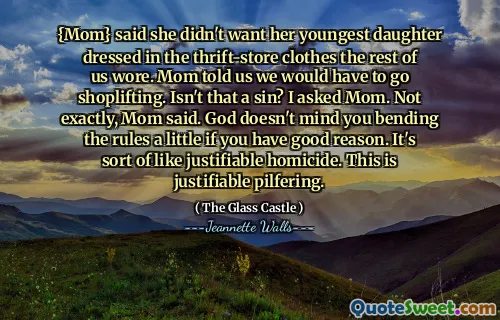
A 'good' family, it seems, is one that used to be better.
This quote offers a profound commentary on changing perceptions of family and the passage of time. It suggests that what is considered a 'good' family today often pales in comparison to the idealized or more cohesive ones of the past. This perspective can be influenced by nostalgia, societal shifts, and the evolving nature of family dynamics. Over generations, families tend to experience both challenges and transformations—shifts in roles, communication styles, social expectations, and cultural norms—that may lead individuals to view contemporary families as less stable or committed. However, this perception can also be a reflection of idealized memory, where the nostalgic lens filters out conflicts and struggles that every family historically endured.
The idea prompts us to consider how societal changes—such as increased mobility, technological disconnection, and shifts in gender roles—have altered traditional family structures. It raises questions about whether families are truly worse off or if our standards and expectations have simply shifted, making previous generations seem more united or resilient than they perhaps were in reality. Moreover, it highlights how society tends to romanticize the past, possibly overlooking the difficulties faced by earlier generations. Accepting this perspective doesn't diminish the importance of striving to improve modern family life; rather, it encourages us to appreciate the resilience and ongoing evolution of familial relationships. Ultimately, it may inspire reflection on what constitutes a 'good' family, whether it is rooted in stability, love, communication, or adaptability, and how our perceptions are shaped by time and memory.











